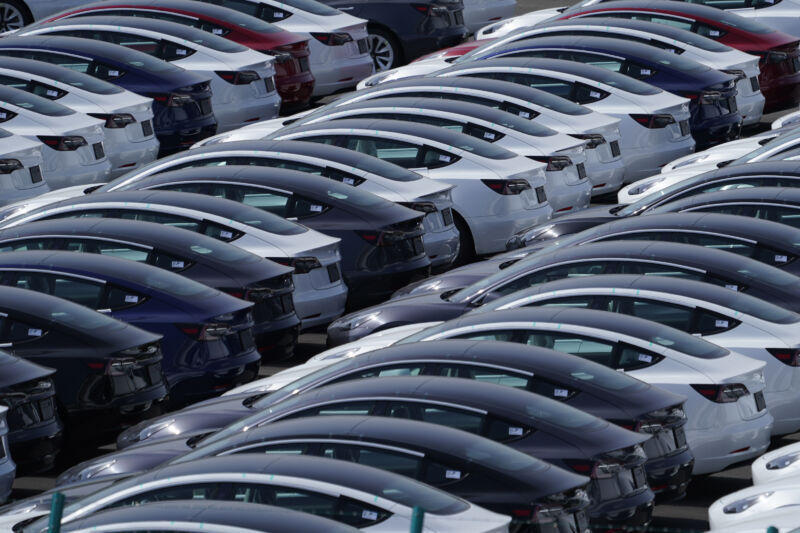
Toru Hanai/Bloomberg via Getty Images
Tesla published its quarterly production and delivery numbers yesterday afternoon, and anyone hoping that the last three months have marked a return to growth will be disappointed. For Q2 2024, the automaker built 418,831 electric vehicles, a 14.4 percent decrease on Q2 2023. The drop in sales wasn’t quite as bad—in Q2 2024 Tesla sold 443,956 EVs, a 4.8 percent decline, year on year.
After several boom years, even the hype-generating powers of Tesla CEO Elon Musk weren’t able to stave off the realities of a small and stagnant product line and a brutal price war, particularly in China. The first quarter of 2024 saw Tesla’s deliveries fall by 8.5 percent, the first time this number hadn’t gone up since 2020.
Later in April, we saw the effect on Tesla’s balance sheet. Profits fell by more than half, and profit margins slumped to just 5.5 percent, barely half the industry average.
In fact, there’s evidence that Musk’s vast reach through social media may be directly harming the Tesla brand at this point. A poll of more than 7,500 New York Times readers, collected earlier this year, revealed that many had a problem being associated with Tesla and Musk, with one comparing driving a Tesla to “a giant red MAGA hat.”
There may be a bright spot in the production and delivery numbers. Tesla delivered 422,405 Models 3 and Y between April and June, but it only built 386,576 at its factories in the US, Germany, and China. For many quarters, Tesla has been building more cars than it has delivered, raising questions and inspiring open source satellite image analysts to go looking for inventory from space. Now, perhaps, the automaker is clearing some of that excess inventory and matching production to more realistic expectations of demand.
In a brief text note to investors, Tesla notes that its solar energy and storage division had a bumper quarter, deploying 9.4 GWh of energy storage. This could see the division contribute up to 20 percent of Tesla’s total revenues for the quarter.
Musk’s reaction to the decline in Tesla’s automotive sales business has been to pivot. Perhaps bored of the realities of a low-margin industry surrounded by cutthroat rivals, the erratic CEO now says the future of the company will be humanoid robots, based on annual projections that bear little to no resemblance to objective reality as we know it.
Tesla investors obviously don’t mind; the company’s share price has risen by more than 8 percent since the market opened at 9:30 am.
